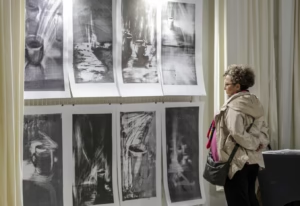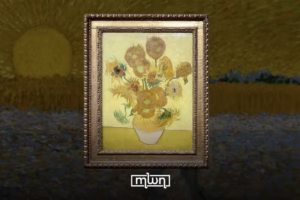How to Shut Down Office Drama with Four Simple Words
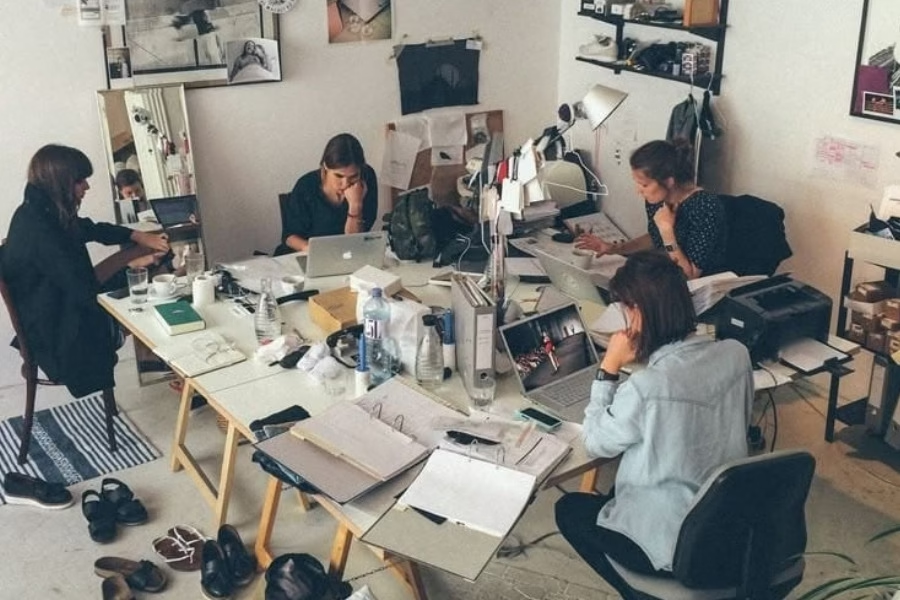
Office drama is inevitable, but letting it control the conversation isn’t. Fez– Office drama is like a bad reality TV show; over-the-top, exhausting, and somehow always playing in the background. It feeds on emotional reactions, spiraling minor incidents into full-blown catastrophes. The problem? The more you engage, the worse it gets. But there’s an easy, effective way to put an end to the theatrics: stay calm and stick to the facts. Employees in drama-heavy workplaces report higher stress, lower engagement, and reduced productivity. Drama doesn’t just make work annoying; it actively harms morale and efficiency. When emotions dictate workplace interactions, confusion spreads, negativity thrives, and real progress takes a backseat. But here’s the good news: You don’t have to play along. The four words that end drama fast Drama needs an audience. Without one, it fizzles out. So when a coworker bursts in with a wildly exaggerated story, resist the urge to gasp, sigh, or get caught up in their emotional storm. Instead, respond with four simple words: “Just the facts, please.” Imagine this scenario: A colleague rushes into your office, out of breath: “It was a disaster! A flood! The whole building might be unsafe!” Your response? “I have no idea what happened, so just the facts, please.” Watch what happens next: They might try again: “You wouldn’t believe how terrible it was!” They’ll push for an emotional reaction: “We should evacuate immediately!” But if you calmly repeat, “I hear you, but I need the facts,” the dramatic energy starts to fade. Why this works This technique is rooted in behavioral psychology. When someone realizes their theatrics aren’t landing, their emotional intensity naturally drops. Drama relies on engagement, when it doesn’t get one, it loses momentum. By sticking to the facts, you’re not just diffusing the current situation, you’re setting a long-term precedent. Over time, your workplace culture shifts from reactionary chaos to rational problem-solving. Employees learn that decisions are based on reality, not exaggerated emotions. And when people feel that logic prevails, trust and stability replace stress and uncertainty. Want to reinforce this approach? Here’s how: Stay neutral: Keep your voice calm and your expression steady. No eye rolls, no dramatic sighs, just quiet confidence. Repeat the “facts-only rule”: If they keep dramatizing, gently redirect: “I understand you’re upset, but let’s focus on what actually happened.” Shift to solutions: Once you’ve got the facts, move forward: “So there was a small leak. Let’s call maintenance and handle it.” Fine-tuning your communication style Some communication styles naturally fuel drama, while others shut it down. If you tend to be highly emotional in conversations, shifting toward a more intuitive, analytical, or functional approach can help. These styles prioritize clear thinking, logic, and structure, exactly what’s needed to keep workplace interactions productive. A drama-free workplace Consistently using this method transforms office culture. Employees who love exaggeration quickly learn it won’t work here, while rational team members thrive in a space free from unnecessary stress. The result? Higher productivity, lower stress, and smarter decision-making. Because when facts drive the conversation, work gets done, without the soap opera. Read also: Reading These Books Puts You in the Top 5% of Intellectual Minds
Why Moroccan Parents Say Don’t Jinx It And Science Says They Might Be Right
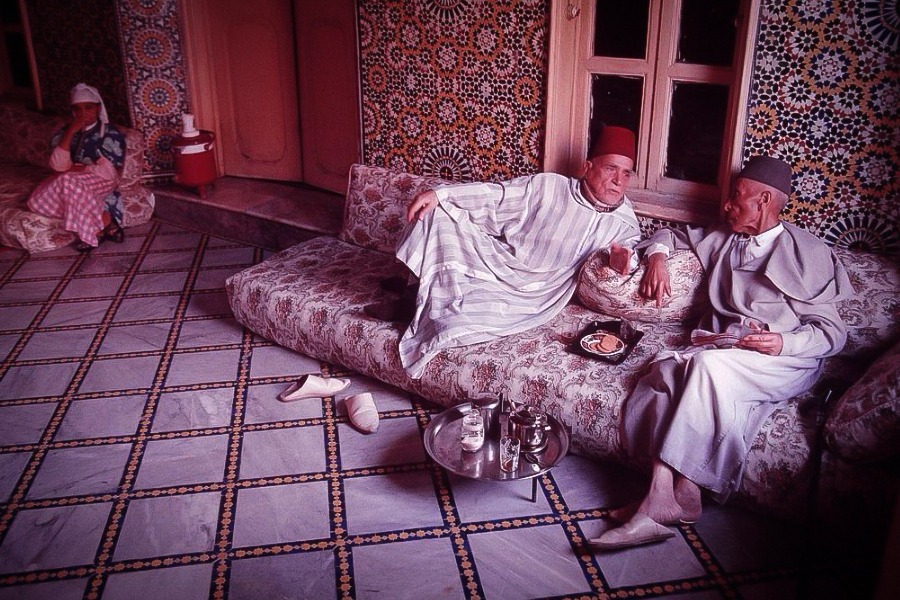
Moroccan parents swear by the phrase “Don’t jinx it,” and science surprisingly backs up their superstition. Fez– If you’ve ever excitedly shared good news with a Moroccan parent, you’ve probably heard the warning: “Don’t jinx it!” This belief in the power of words and thoughts to influence reality isn’t just a cultural quirk, it has deep roots in both tradition and psychology. But could science actually back up this superstition? Surprisingly, yes. The evil eye The fear of “l’ayn” (the evil eye) exists across many cultures, from the Mediterranean to the Middle East. In Morocco, people believe that excessive praise or open discussion of good fortune can attract envy, leading to misfortune. This explains why phrases like “Allah ybarek” (May God bless it) or “Mashallah” (God willed it) are commonly used to deflect bad energy. This belief may stem from our evolutionary instincts. Humans are wired to be wary of jealousy because it can disrupt social harmony. In ancient communities, being envied could mean losing resources or social standing, so people developed protective rituals, like avoiding talking about success or wearing protective charms, to safeguard themselves. The science of jinxing: is it real? The belief in jinxing is linked to cognitive biases like confirmation bias and the self-fulfilling prophecy. When people think they’re jinxed, they become anxious, which can negatively affect their performance. When people believe they are “cursed” or “jinxed,” their stress levels rise, leading to poor decision-making and decreased confidence. Interestingly, people believing in luck (the opposite of a jinx) performed better on tasks, thanks to increased self-confidence. On the flip side, people who thought they were jinxed became more nervous and performed worse. Why do Moroccan parents insist on it? Moroccan parents aren’t just trying to ruin your excitement, they’re actually applying a mix of cultural wisdom and psychology. Avoiding premature celebration reduces the risk of disappointment and helps keep expectations realistic. In a way, their warnings serve as a mental safeguard against overconfidence and emotional distress if things don’t go as planned. While there’s no scientific proof that simply talking about good fortune can bring bad luck, there is strong evidence that believing in a jinx can impact your mindset and actions. So, the next time your Moroccan parents tell you not to jinx something, you might want to listen — if only to keep your own nerves in check! Read also: Are Moroccan Dads the Funniest Unintended Comedians?
The Psychological Benefits of ‘Jbel Life’
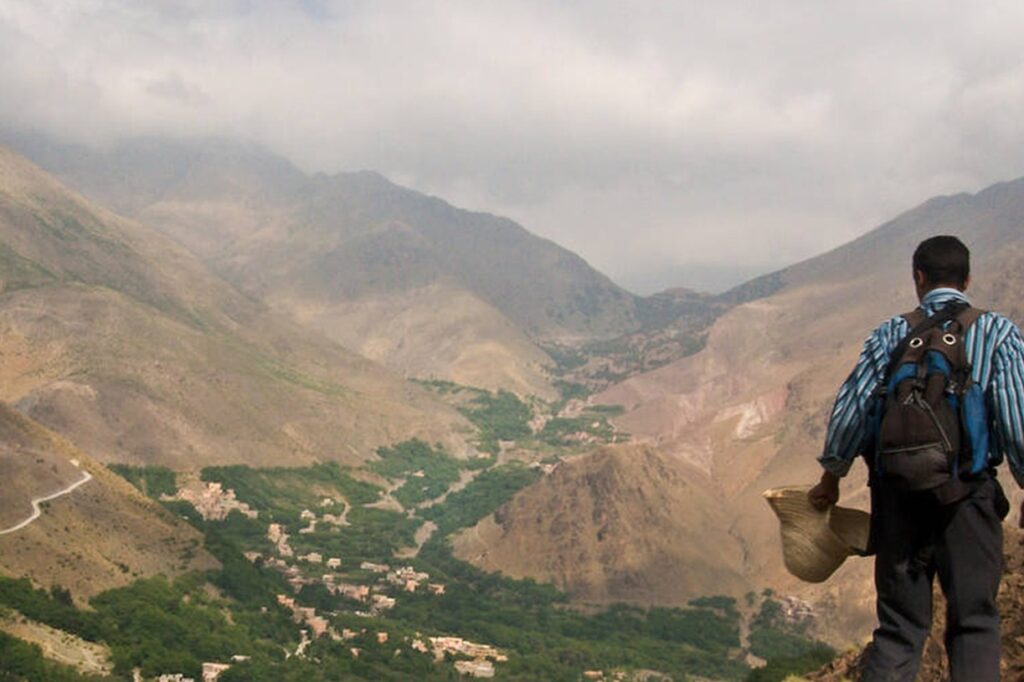
In the city, life feels fast and heavy, but high in the mountains, time slows down, and something inside you feels free again. Fez – Life in the city is fast. Cars, noise, crowds, everywhere you go, there’s stress. People run from work to home, from home to work. Their minds never rest. But in the mountains, life is different. It’s slow, peaceful, simple. That’s why city people need it. The air feels different The first thing you notice in the mountains is the air. It smells fresh. You breathe deep, and your chest feels light. In the city, the air is heavy, too much smoke, too many cars. In the mountains, your body feels clean. Scientists say fresh air helps the brain. It makes you think better, sleep better, and feel happier. No stress, no noise City life is noise, horns, shouting, and machines. Your mind never stops. In the mountains, you hear the wind, birds, and the sound of water. Silence heals the brain. It gives your mind space to think, to relax. That’s why people who live in the mountains have calm faces. They don’t rush. They don’t panic. The power of simple living Mountain people don’t need much. They eat what they grow. They wake up with the sun, sleep early, and work hard. They don’t think about brands, shopping, or social media. Their problems are simple, and their hearts are light. In the city, people have everything, yet they feel empty. In the mountains, life is basic, but people feel full. Connection to nature Walking in the mountains is not like walking in a city park. It’s real. You feel the earth under your feet, the sun on your skin, the cold in your hands. Your body remembers what it means to be alive. Studies say nature lowers blood pressure, reduces sadness, and clears the mind. But Moroccans don’t need studies to know this. Ask any farmer, any shepherd, they will tell you, “The earth gives you peace.” Time feels different In the city, people always check the time. “I’m late!” “I have a meeting!” “Hurry up!” In the mountains, time is slow. You drink tea without rushing. You sit outside and watch the sky. You talk without checking your phone. Your heart beats slower. You feel life again. Why city people need it People in the city need to escape. Not to hotels, or shopping malls, but to the real mountains. To sleep under the stars. To drink water from a spring. To sit with a shepherd and listen to his stories. Moroccan mountains are medicine. They heal the heart, clear the mind, and remind us of something we forget in the city: Life is simple. Read also: Bouznika’s Weekend of Swings, Sunsets, and Signature Moments
The Hidden Signs of Emotional Burnout
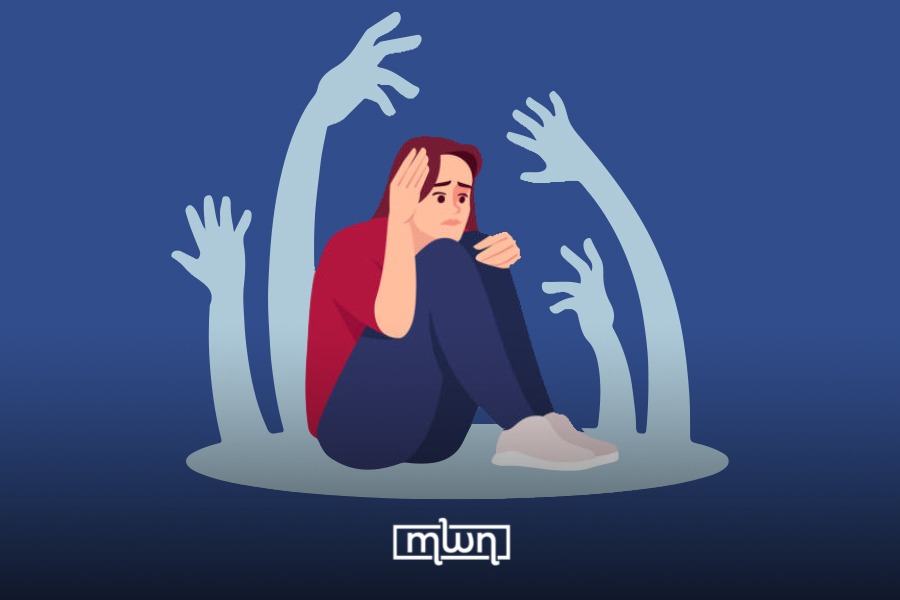
What if the biggest warning sign is the one you’ve learned to ignore? Fez – Emotional burnout doesn’t happen overnight. It creeps in slowly, often unnoticed, until exhaustion becomes the new normal. Many people push through, unaware of the warning signs, mistaking them for simple fatigue or stress. But burnout is more than just being tired; it drains energy, motivation, and even the ability to feel joy. According to Integris Health, one of the first signs is a deep sense of emotional numbness. Things that once brought excitement or happiness start to feel dull. Conversations feel forced, and even small tasks seem overwhelming. People going through burnout often feel disconnected from their own emotions, as if they’re watching their lives from the outside. Another hidden sign is unexplained irritability. Little things, background noise, slow internet, and a casual question, start to feel unbearable. Burnout shortens patience, making it harder to handle everyday frustrations. This can lead to guilt, as people struggle to understand why they’re reacting so strongly to things that never bothered them before. Sleep patterns also change. Some people struggle with insomnia, their minds racing long after they’ve gone to bed. Others sleep more than usual but still wake up exhausted. No amount of rest seems to restore energy, leaving a constant feeling of heaviness. Physical symptoms are just as telling. Frequent headaches, stomach issues, and unexplained body aches can be signs of burnout. According to psychologists, the body responds to emotional exhaustion the same way it does to prolonged stress – leading to real, lasting discomfort. Perhaps the most concerning sign is detachment. Burnout can make relationships feel like a burden rather than a source of comfort. People withdraw from friends, avoid social events, and prefer to be alone, not out of preference but out of sheer exhaustion. Despite how common emotional burnout is, society often fails to recognize it. Many people assume burnout is just laziness or lack of discipline. It is frequently mistaken for depression, boredom, or simply a bad attitude. Employers may dismiss it as an excuse, friends may not understand why someone has suddenly become distant, and even family members might urge their loved ones to “just push through.” This misunderstanding makes burnout even harder to address. People struggling with it may feel pressured to keep performing, afraid of being judged if they admit they are emotionally drained. The stigma surrounding mental exhaustion discourages people from seeking help, leading to deeper burnout and long-term consequences. Recognizing these signs is the first step. Burnout isn’t a sign of weakness; it’s the body’s way of demanding rest. Society needs to shift its perspective and take burnout seriously. Slowing down, setting boundaries, and seeking support can make all the difference. Ignoring burnout won’t make it go away. But paying attention to its signs can be the key to recovery before it takes a deeper toll. Read also: The Science of Manifestation: Does It Really Work or Is It a Placebo?
Sidi Frej Maristan: The Historic Hospital of Fez
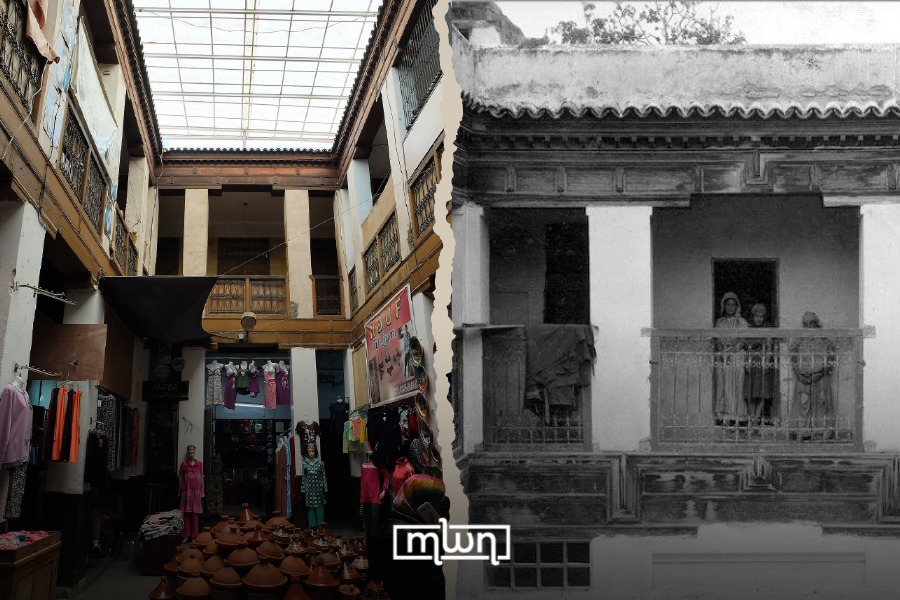
Hidden within the streets of Fez’s old city, this hospital ,is a centuries-old, with a rich history of tales of healing. Fez – Sidi Frej Maristan, located in the heart of Fez, is one of the oldest hospitals in Morocco. Established in 685 AH (1286 CE) by Sultan Abu Yusuf Yaqub, the hospital underwent significant upgrades in 766 AH by Sultan Abu Inan. Until the mid-20th century, it served as a crucial medical facility until the mid-20th century, providing care for patients, especially those with mental health conditions. According to historical accounts, Sidi Frej Maristan was part of a larger network of hospitals in Fez. Historian Leo Africanus noted that the city had many well-maintained hospitals, where travelers could stay for three days. Outside the city walls, similar facilities offered comparable services. The hospital’s name, “Sidi Frej”, is thought to honor a nearby saint. However, some historians, like Al-Kettani in his book Salwat Al-Anfas, suggest there was no saint or tomb named Sidi Frej near the hospital. Instead, the name likely reflects the relief it provided to patients. The hospital was a sanctuary for those without shelter, offering care funded by generous endowments. In 900 AH, a physician of Andalusian origin, Faraj Al-Khazraji, introduced music therapy at Sidi Frej Maristan. Andalusian music became an integral part of the hospital’s mental health treatments. This innovation may have contributed to the hospital’s name. The hospital is located near the Moulay Idriss mausoleum, between the Attarine and Henna markets. Historans, including Al-Kettani and Hassan Al-Wazzani, describe it as a two-story building with 18 rooms on the ground floor for male patients and 22 rooms upstairs for women. A garden provided a peaceful space for patients, where weekly Andalusian music performances helped improve their mental well-being. The hospital’s administrative structure was organized and efficient. A director supervised operations with the help of assistants and a custodian who managed the building and its finances. The medical team included doctors, pharmacists, and nurses. Additional staff, like cooks and caretakers, ensured patients’ needs were met. Music therapy was performed by skilled musicians chosen through a competitive process. Sidi Frej Maristan specialized in various medical fields, including internal medicine, orthopedics, ophthalmology, and psychiatry. Over time, it focused primarily on mental health care. The hospital’s operations were funded by state resources and extensive endowments, and wealthy donors contributed to its upkeep and provided support for poor patients even after their discharge. This system reflected the strong social solidarity of the time, ensuring that patients received care and support throughout their recovery. Read also: Baby Shower – the Moroccan Way




